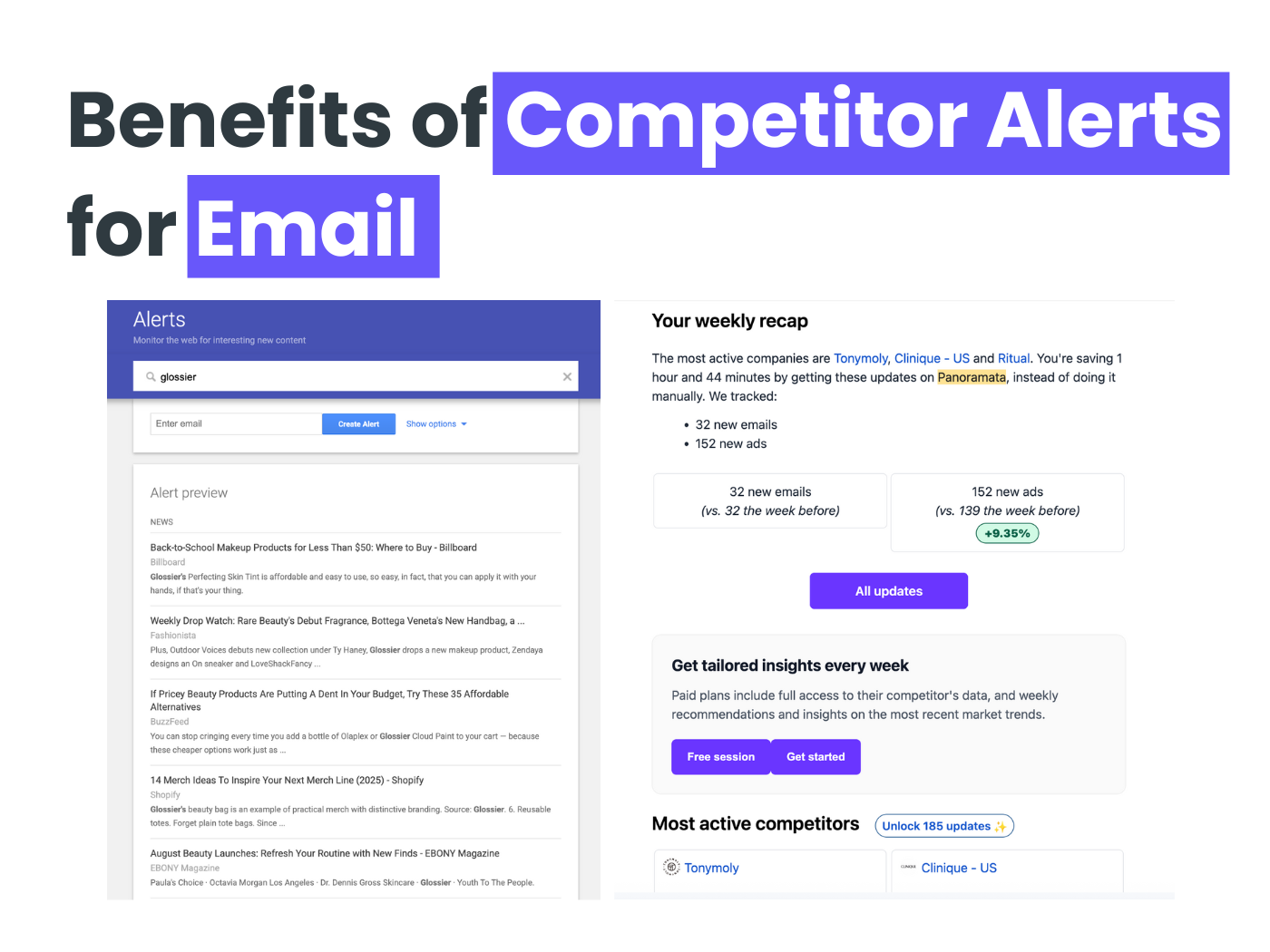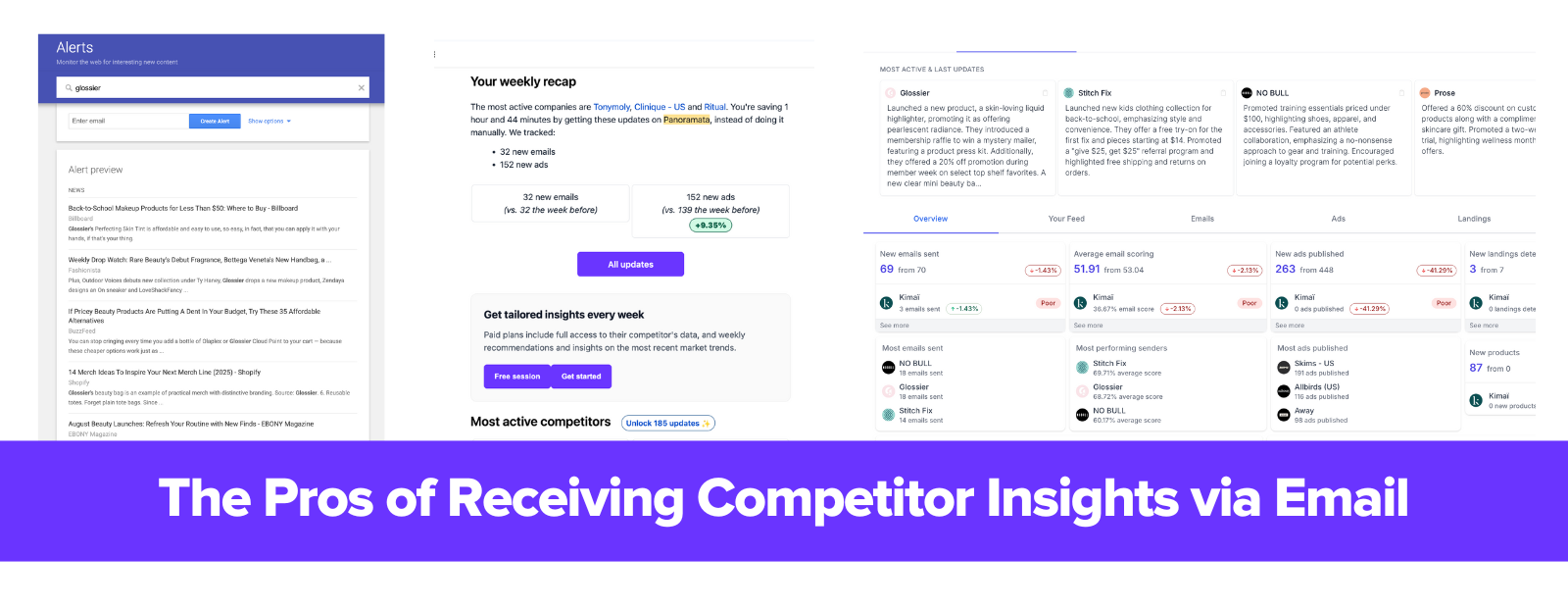If you want sustainable growth for your business, you need to always be on your toes and adapt to the market. Tides turn quickly, thanks to the hyperspeed pace the modern world runs on.
Customer preferences change, and a new product becomes in vogue in a matter of days and weeks, instead of months and years. Blame it on social media or short attention spans, but the fact remains that brands need to adapt to avoid missed opportunities.
You would know all these changes if you monitor your competitors regularly. Your competitors can be your guinea pigs when refining your marketing strategy. They’re trying things out and seeing what works, just as you are.
That also means they’re encountering similar problems and trying to grab a bigger market share. They have had things work and have had things fail. You should keep tabs on their marketing ploys online and see what they’re sticking with.
But all this is a big ask when you are a busy professional with fingers in a lot of pies. You’re too busy to stay on top of this yourself.
That’s why we recommend automated competitor monitoring through competitive intelligence tools.
In this article, we’ll explore the benefits of competitor monitoring and competitor alerts and why they should be a part of your daily work routine (and how to do this).
Keep on reading if you want to know more about competitor alerts.
What are competitor alerts?
A competitor alert is a notification sent to you when a competitor publishes an ad, email, landing page, and other trackable activities.
You can also get alerts for SMS campaigns, website changes, price changes, and other aspects of a competitor’s marketing activity.
Your competitors can be your guinea pigs when refining your marketing strategy. They’re trying things out and seeing what works, just as you are.
Competitor intelligence tools often include competitor alerts as part of their platform’s capabilities. You can also use free competitor alert tools like Google Alerts to track competitor mentions across the web.
Google Alerts is a great tool because it can sift through search engine results to see if a keyword has been mentioned.
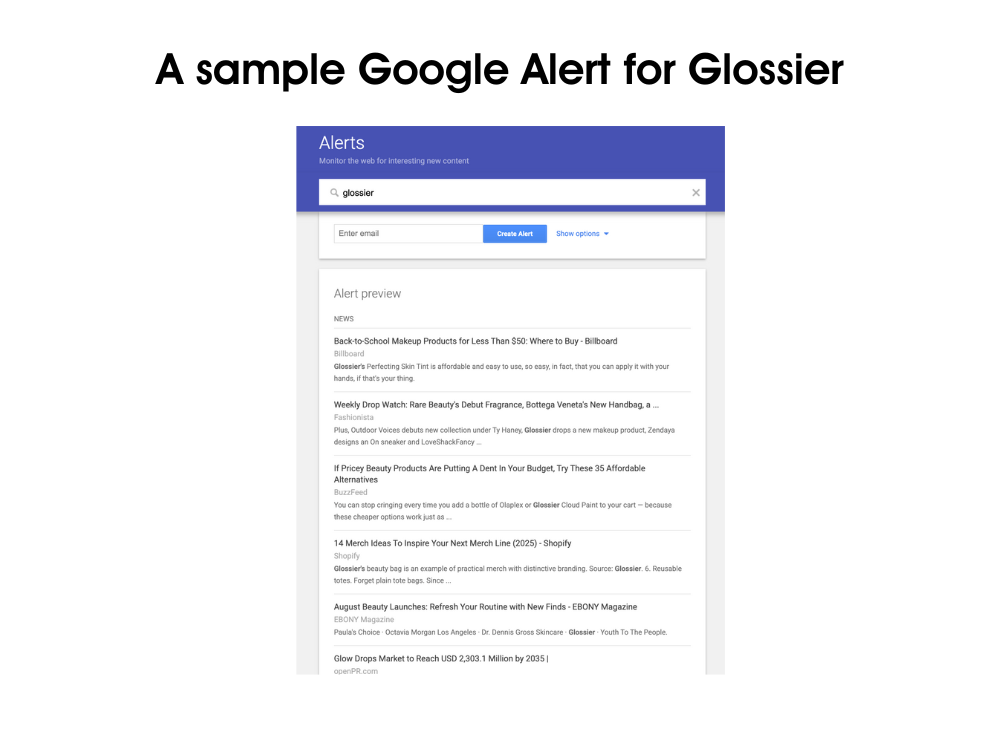
However, it is also limited because it cannot track competitor activity outside of search engines, which is a bulk of competitor activity that will be most useful to you. Emails, ads, landing pages, and SMS are not trackable by Google Alerts.
Benefits of competitor alerts
A competitor alert’s basic function is to relay information. What you do with the information it gives you is up to you.
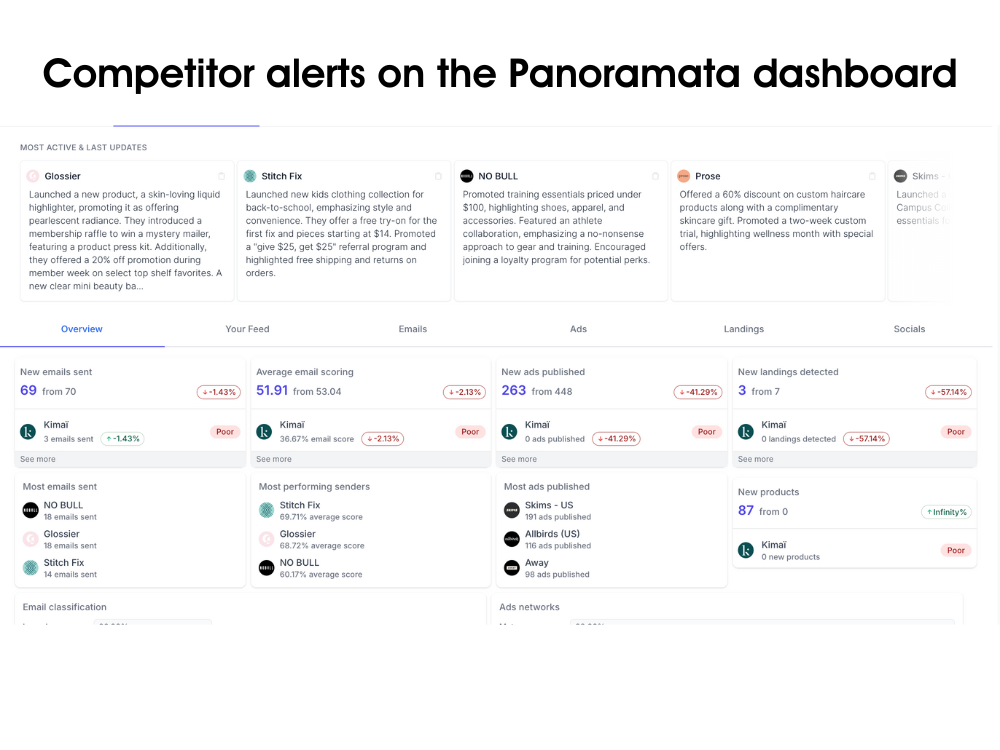
However, competitor alerts will benefit you massively if you use them for competitor analysis, a process that entails evaluating your competitors and trying to understand their business strengths and strategies.
You can also use competitor analysis to benchmark your performance, ensuring you have a solid baseline that you measure yourself against to motivate you to improve.
Competitor monitoring through competitor alerts helps you track changes in marketing strategies and market conditions.
It also keeps tabs on audience preferences and trends, which brands can lose sight of very quickly if they’re not attuned to social media and other platforms people spend time on.
Finally, competitor tracking gives you a reliable source of inspiration for your marketing campaigns and materials.
When Black Friday rolls around, you won’t scramble for last-minute ideas if you have monitored your competition regularly the whole year round and know what they’re likely to publish this year.
Why set up competitor alerts for email
Using a competitor tracking tool is cool to start with but competitor alerts will heighten the benefits of tracking tools. Competitor alerts sent in real time (or whatever frequency you prefer) have immediacy.
And when you configure your competitor alerts to be sent to a communication channel you’re already using, you also get ease of use since it combines alerts with the tools you’re already using in your day-to-day life.
Our first recommendation for receiving competitor alerts is through email. You check your inbox every day so it makes sense to put alerts in there, something you always open. You also don’t need any integrations to make this happen in your competitor intelligence platform of choice.
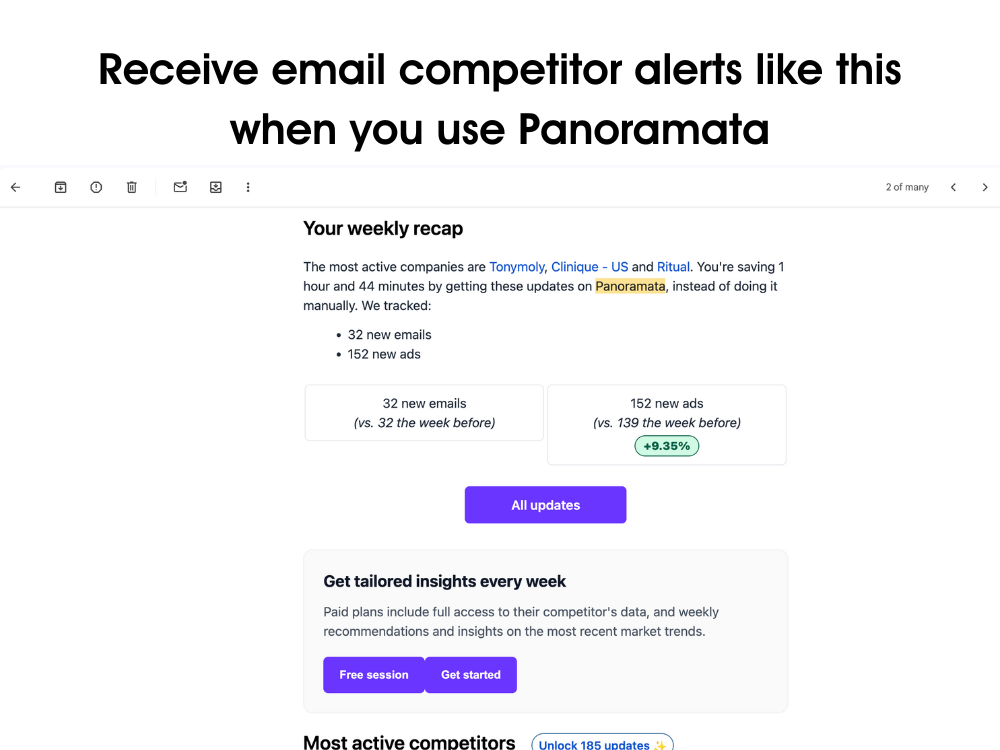
This means you’re more likely to view competitor data and act on it, therefore maximizing the effects of competitor awareness and analysis.
By integrating competitor intelligence into your daily routine, you can maximize your awareness and analysis, ensuring you're always one step ahead and ready to adapt.
How to turn on email competitor alerts on Panoramata
It’s easy to receive competitor alerts via the channel of your choice on Panoramata.
First, go to the notification center by clicking on the profile icon on the upper right corner of your Panoramata dashboard.
From the drop down menu, click Notification Center.
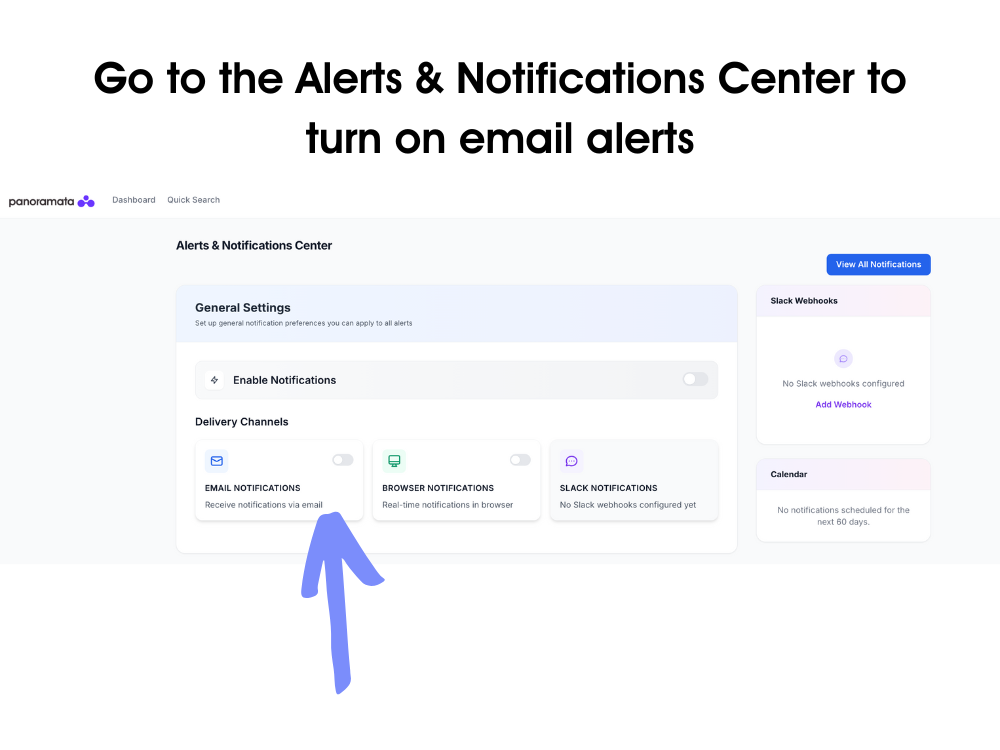
Then when you’re directed to the Notification Center, click the toggle for email notifications.
Your preferences will be saved automatically.
Competitor alerts enhance competitor monitoring
Staying aware of your competitors is a non-negotiable is essential for any business.
By keeping an eye on their strategies, you can gain valuable insights that help you improve and benchmark your performance.
Aside from that, constant monitoring helps you stay agile and seize opportunities as customer preferences and trends evolve rapidly.
Since manual competitor tracking can be overwhelming, automated competitor alerts are a game-changer. Especially when delivered right to your email, these alerts offer immediate, actionable insights without disrupting your existing workflow.
Ready to start your own competitive analysis? Grab your free competitive analysis template below. If you’d like to learn more about Panoramata, book a demo with us or take it out for a spin by signing up here.
FAQs
What is a competitor alert?
A competitor alert is a notification sent to you when a competitor engages in trackable activities, such as publishing ads, emails, or changing their website.
Why are competitor alerts important for business?
They help businesses understand competitor strategies, benchmark their own performance, stay updated on market changes, and find inspiration for marketing campaigns.
Why is email recommended for receiving competitor alerts?
Email is a convenient and frequently checked communication channel, ensuring that you receive and are more likely to act on competitor intelligence without additional integrations.


